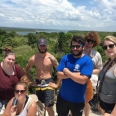
Tropical Ecology Program
Loyola’s Tropical Ecology study abroad program combines lectures and discussions on campus with field trips to Central America.
Take a look at the video of what our Tropical Ecology class did this May ’16.
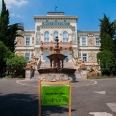
Loyola’s Environment Program’s Presence at the 1st Network Meeting of the International Association for Plant UV Research (UV4Plants) at Pécs, Hungary
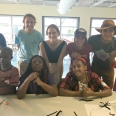
Loyola professor and students teach children about invertebrates at BASIN (Building Active Stewardship In New Orleans)
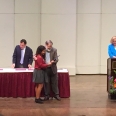
Destiny Karash-Givens was given the environmental major for excellence in service award this year at Loyola’s Honors Convocation.
Destiny has been involved in all of these service activities during her time at Loyola. These activities have included:
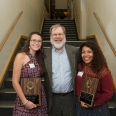
Allison Davis was given the environmental major for excellence in research award this year at Loyola’s Honors Convocation.
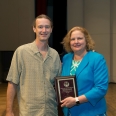
This award is presented to a staff member who demonstrates outstanding service above and beyond what is required and expected. Mark has and continues to do outstanding work in the Loyola greenhouse.
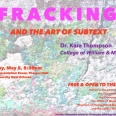
Dr. Kara Thompson is an assistant professor of English & American Studies at the College of William & Mary, and her work focuses on questions of indigeneity, national borders, and temporality. Her recent research interests have taken her into the interdisciplinary field of environmental humanities, and at Loyola Prof. Thompson will be presenting new work on how hydraulic fracturing relies on specific ways of reading the earth. Her talk at Loyola, “Fracking and the Art of Subtext,” shows how resource extraction depends on narrative structure.

Atlas of Science
April 14, 2016
Safely basking in the sun: Some plants apply sunscreen only when they need it
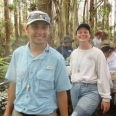
Honors students Melanie Sferrazza '17, an environmental science junior, and Michael Pashkevich '17, a biological sciences senior, recently spent a week in Everglades National Park learning about invasive species threatening the health of our national parks.
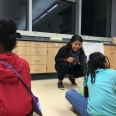
The purpose of this research was to learn how students in an introductory high school biology class responded to active learning rather than lecture. Active learning is a form of instruction that emphasizes interactions with peers and instructors and involves a cycle of activity and feedback where students are given consistent opportunities to apply their learning in the classroom. By doing this it allows the students to engage in real world experiences, gain constructive knowledge, and use the world around them as a learning environment.
